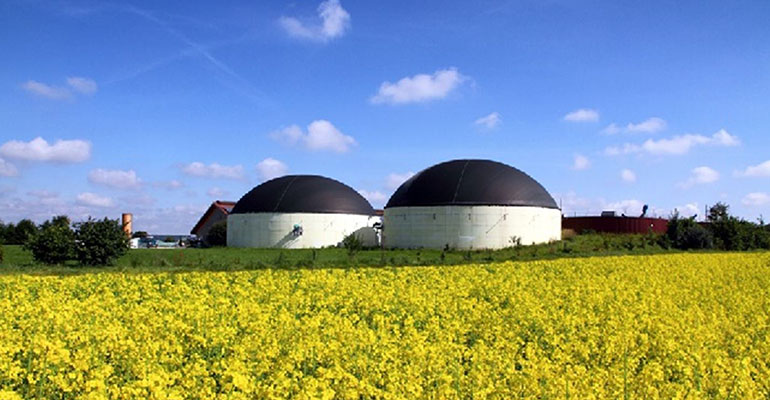Bill passed this week by the State Legislative Assembly, brings a legal framework that stimulates the production and use of biogas as an energy source
Santa Catarina creates an incentive policy to transform organic waste from animal production into energy. Bill 26/2018, approved on Tuesday (26) by the State Legislative Assembly, brings a legal framework that stimulates the production and use of biogas as an energy source. Santa Catarina is the first Brazilian state to have a biogas policy and its own legislation on the subject.
The main objective of the Bill is to provide guidelines for the waste products (feces and urine) produced in livestock and also the organic waste produced in the urban area to be used in the production of energy by means of biodigesters. In addition to solving an environmental liability - pollution caused by animal waste - the policy aims to offer a new source of income to the rural man and diversify the energy matrix in Santa Catarina.
According to the Secretary of State for Agriculture and Fisheries, Airton Spies, with the new state law, producers of pigs, poultry and milk could invest even more in the construction of biodigesters to give an appropriate treatment to animal waste and also to use solid waste from urban waste and industries. "Santa Catarina makes room to turn garbage into luxury. Waste from intensive animal production and urban waste become a wealth that will contribute to the generation of jobs and income and to the sustainable development of our state. Santa Catarina is in line with the best practices in the world ", he points out.
How the biodigester works
Organic wastes are placed in biodigesters where the fermentation and release of methane gas takes place. This gas can be used in two ways: in direct burning, generating heat and replacing other types of gas, and also in burning in engines and turbines, which transform it into electricity. Both gas and electricity can be used on the farm or sold for use in the public network.
In addition, biofertilizer (liquid waste from biodigestion) can be used in crops and pastures, replacing fertilizers chemical and with a much lower pollutant potential in relation to manure.
Environmental impact
The production of biogas has a direct impact on the preservation of the environment. Secretary Airton Spies explains that the capture of methane gas in the decomposition of animal waste reduces by 21 times the greenhouse effect. "Methane is 21 times more harmful to greenhouse gas than carbon dioxide, which is released in the generation of energy after biodigestion. Therefore, the Biogas Law contributes significantly to reducing global warming, maintaining balance and reducing climate change. "
Mundial Bank
Through the SC Rural Program of the State Secretariat of Agriculture and Fisheries, three consulting companies were contracted with World Bank financing to diagnose the potential for biogas generation in Santa Catarina, locating generation of waste.
The regions of Concordia and Braço do Norte, for example, are ahead in the production of swine manure, while Biguaçu has a great source of raw material from the solid waste. The survey also detected the potential segments and groups of consumers of this type of energy, studying the networks of distribution, generation and use of biomethane.
SC Biogas Committee
The committee is composed of the State Secretariat of Agriculture and Fisheries, the Legislative Assembly of the State of Santa Catarina, the Foundation for Support to Research and Innovation of the State of Santa Catarina (Fapesc), the Environment Foundation (Fatma), the (SDS), the Santa Catarina Public Services Regulatory Agency (Aresc) and the Santa Catarina Association of Energy Producers (Apesc). Also contributing to the work were Unoesc, Embrapa, Fundação Certi, Andersen Ballão and J.Malucelli.
